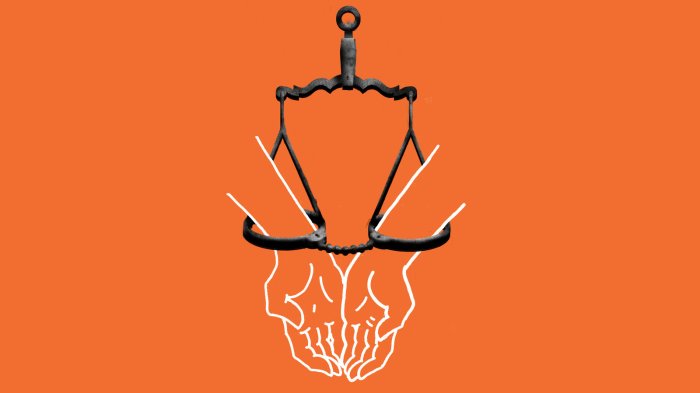With “Spare Me This Mockery of Justice” as our rallying cry, we delve into a captivating exploration of the phrase’s origins, legal implications, rhetorical power, and societal significance. Prepare to be enthralled as we unravel the layers of this powerful expression, revealing its impact on the legal system, public discourse, and our collective understanding of justice.
From its historical roots to its contemporary usage, we will trace the evolution of “Spare Me This Mockery of Justice.” We will examine its legal implications, exploring how it has been employed to challenge judicial decisions and expose flaws in the legal process.
Historical Context:

The phrase “spare me this mockery of justice” has a long and storied history, dating back to the 18th century. It was first used in a legal context to criticize unfair or unjust trials. Over time, the phrase has evolved to become a more general expression of dissatisfaction with the legal system.
One of the most famous instances of the phrase being used was during the trial of Marie Antoinette. When she was found guilty of treason and sentenced to death, her lawyer exclaimed, “Spare me this mockery of justice!” The phrase has also been used in more recent times, such as during the trial of O.J.
Simpson.
Legal Implications:: Spare Me This Mockery Of Justice
The phrase “spare me this mockery of justice” can have serious legal implications. When used in a legal context, it can be interpreted as a criticism of the court or the legal system. This can lead to the judge or jury becoming biased against the person making the statement.
In some cases, the phrase can even be considered contempt of court. This is because it can be seen as a challenge to the authority of the court. If someone is found guilty of contempt of court, they may be fined or even jailed.
Rhetorical Analysis:

The phrase “spare me this mockery of justice” is a powerful rhetorical device. It uses strong language to evoke emotions and elicit a particular response from the audience. The phrase is often used to criticize the legal system or to express frustration with a particular verdict.
The phrase is effective because it is both concise and evocative. It is easy to remember and it can be used in a variety of contexts. The phrase can also be used to create a sense of urgency or to make a point more forcefully.
Social and Cultural Significance:

The phrase “spare me this mockery of justice” has a significant social and cultural meaning. It reflects the widespread dissatisfaction with the legal system. The phrase is often used to express frustration with a particular verdict or to criticize the legal system as a whole.
The phrase has also been used in popular culture. For example, it was used in the title of a song by Bob Dylan. The phrase has also been used in movies and television shows.
Frequently Asked Questions
What is the historical origin of the phrase “Spare Me This Mockery of Justice”?
The phrase has its roots in the 17th century, when it was used to express outrage at perceived miscarriages of justice.
How has the phrase been used in legal contexts?
The phrase has been used to challenge judicial decisions, criticize legal procedures, and expose systemic injustices.
What rhetorical devices are employed in the phrase “Spare Me This Mockery of Justice”?
The phrase uses irony, hyperbole, and emotional appeals to convey a sense of outrage and urgency.